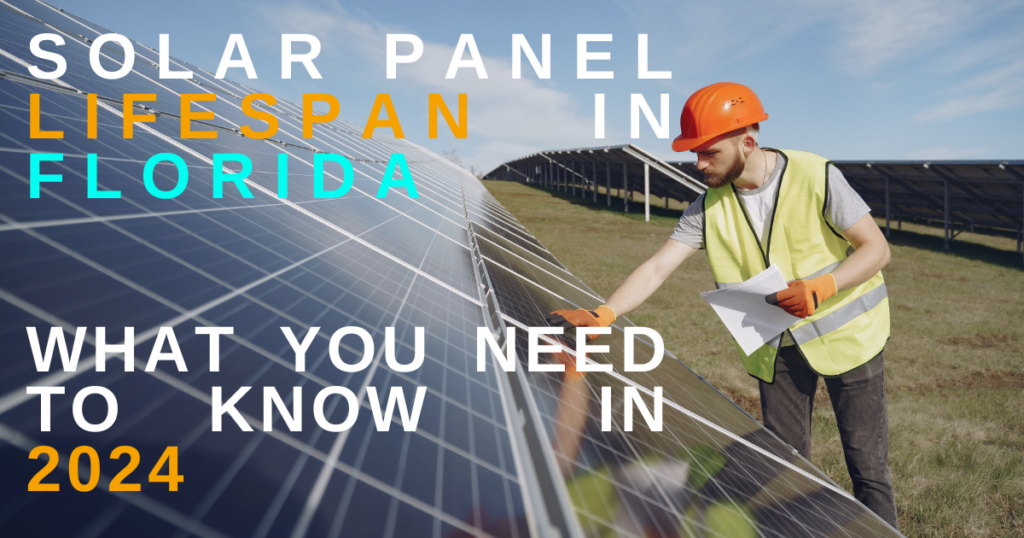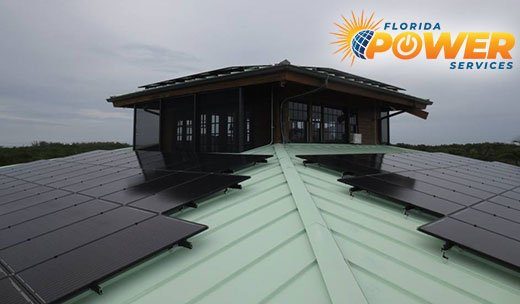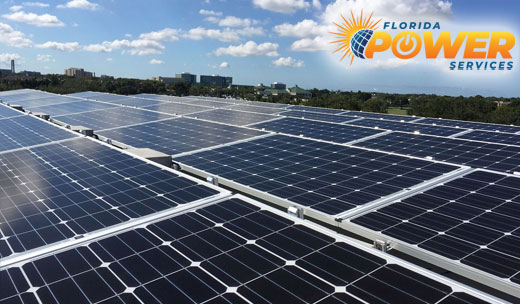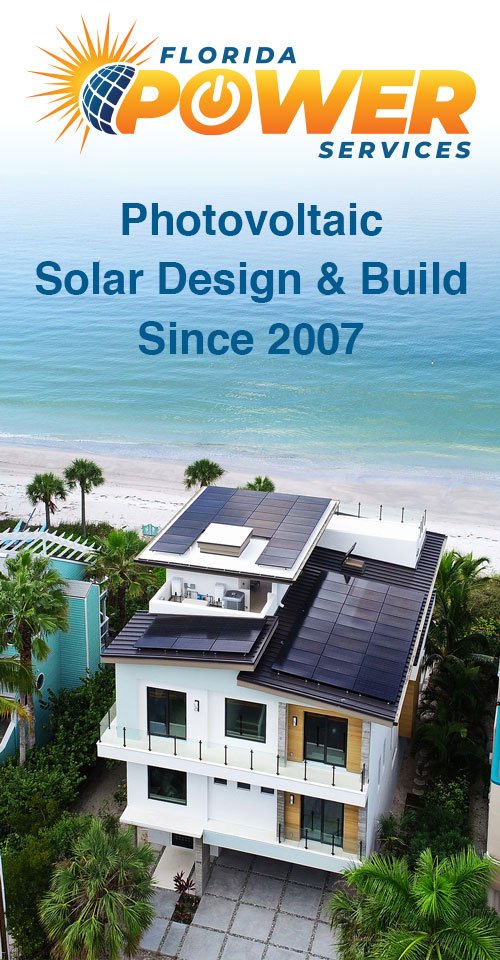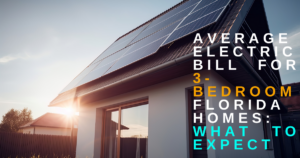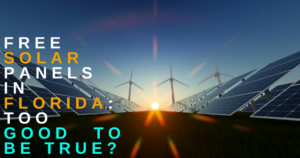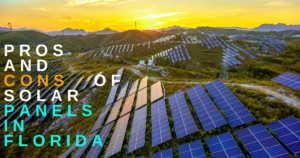Solar energy is rapidly growing in popularity across Florida, aptly named “The Sunshine State.” As homeowners and businesses increasingly turn to solar power to reduce energy costs and environmental impact, a common question arises: *How long do solar panels last in Florida*? Given the state’s ample sunshine, this question is particularly relevant for anyone considering the switch to renewable energy. In this blog, we will explore the lifespan of solar panels in Florida, the factors affecting their longevity, and tips for maximizing the value of your solar investment.
Solar Panels: How They Work
Before delving into solar panel longevity, it’s essential to understand how solar panels work. Solar panels consist of photovoltaic (PV) cells that capture sunlight and convert it into electricity. When installed on rooftops or ground mounts, these panels harness the sun’s energy to generate power for your home or business.
But how long can you expect solar panels to last in Florida’s sunny yet sometimes challenging environment?
How Long Do Solar Panels Last?
On average, solar panels last between 25 and 30 years. While this doesn’t mean they stop working after this time, their efficiency gradually declines. Typically, manufacturers offer warranties guaranteeing that the panels will still produce 80% of their original output after 25 years. In fact, many panels continue to generate electricity well beyond this point, though at reduced efficiency.
In Florida, with its sunny climate, solar panels have the potential to perform at a high level. However, certain environmental factors specific to the region can influence how long they remain effective.
Factors Affecting Solar Panel Longevity in Florida
1. **Florida’s Unique Weather**
While Florida’s ample sunshine is ideal for solar energy, other weather conditions can impact the durability of solar panels:
– **Hurricanes and Tropical Storms**: Florida is notorious for its hurricane season, particularly from June to November. Although solar panels are built to withstand high winds (up to 140 mph), extreme storms can pose a risk, especially if debris hits the panels. However, research has shown that solar panels are remarkably resilient during storms .
– **Heat and Humidity**: Florida’s intense heat and humidity can cause wear and tear on the materials of solar panels over time. High temperatures can reduce panel efficiency, though modern solar technologies are designed to mitigate these effects.
– **Salty Air**: For those living near Florida’s coastlines, the salty air can be corrosive to the metal components of solar panels and their mounting structures. Coastal residents should opt for corrosion-resistant materials like aluminum or stainless steel to prevent salt damage .
2. **Quality of Solar Panels**
The quality of the solar panels you choose plays a significant role in their longevity. High-quality panels from reputable manufacturers tend to last longer and perform better, especially in Florida’s demanding climate. When selecting solar panels, it’s important to consider both the manufacturer’s reputation and the warranties offered. Some premium brands provide warranties lasting up to 30 years, which can give you extra peace of mind.
3. **Installation Quality**
The quality of your solar installation is another critical factor in determining how long your solar panels will last. A professional installation ensures that the panels are securely mounted and positioned to receive optimal sunlight throughout the day. Poorly installed panels may be more vulnerable to wind damage or might not capture the maximum amount of sunlight.
When choosing an installer, it’s crucial to select a company experienced with Florida’s weather conditions. A reliable solar installer will be familiar with how to protect your system from heat, humidity, and potential storm damage. For tips on finding the right installer, you can book your free consultation for detailed guidance.
4. **Maintenance and Care**
Proper maintenance is key to extending the life of your solar panels. In Florida, regular cleaning is important to remove dirt, pollen, and bird droppings that can accumulate on the surface of the panels, reducing their efficiency. For those near the coast, it’s also essential to clean off any salt deposits that may form.
While solar panels are generally low-maintenance, scheduling periodic inspections by a professional can help identify potential issues like cracked panels, loose wiring, or corroded components. Addressing small issues early can prevent costly repairs or premature panel failure.
Solar Panel Degradation Rate
The degradation rate of solar panels refers to the gradual decline in their ability to produce electricity over time. Most modern solar panels degrade at a rate of 0.5% to 1% per year. This means that after 25 years, the panels will still produce around 75% to 90% of their original power output .
In Florida’s climate, degradation rates may be slightly higher due to the heat and humidity, but high-quality panels are engineered to withstand these challenges. Even with some loss in efficiency, solar panels remain a valuable and cost-effective energy solution for many years.
Warranties and Guarantees
Most solar panel manufacturers provide two types of warranties:
1. **Performance Warranty**: Guarantees that the panels will produce a certain percentage of their original output (typically 80%) after a specified number of years, usually 25.
2. **Product Warranty**: Covers manufacturing defects or malfunctions, with warranties ranging from 10 to 25 years depending on the manufacturer.
It’s essential to review both types of warranties when considering the lifespan of your solar panels in Florida. Some manufacturers offer extended warranties, which can provide added security for your investment. For more information on warranties, SolarReviews offers a helpful guide.
How to Extend the Life of Your Solar Panels
Here are a few steps you can take to ensure your solar panels last as long as possible in Florida:
– **Invest in High-Quality Solar Panels**: Choose panels with strong warranties and a proven track record of durability in hot, humid climates.
– **Regular Maintenance**: Clean your panels to prevent dirt, pollen, and salt buildup, particularly in coastal areas.
– **Hurricane Protection**: If you live in a hurricane-prone area, consider using hurricane-rated mounting systems or protective covers for your solar panels.
– **Monitor Performance**: Utilize monitoring systems to track your panels’ performance. If you notice a significant drop in energy production, it could indicate a problem that needs addressing.
The Financial Benefits of Long-Lasting Solar Panels
One of the main reasons for investing in solar panels is the long-term financial savings. While the initial cost of installing solar panels can be substantial, the savings on your electricity bills over the life of the system can more than offset the cost. In Florida, where electricity rates are relatively high and sunshine is abundant, solar panels can pay for themselves in as little as 6 to 8 years .
After the panels are paid off, the electricity they generate is essentially free. Even after 25 years, when efficiency may have slightly decreased, solar panels continue to provide significant energy savings.
Additionally, Florida offers several financial incentives for solar installation, such as the federal solar tax credit and net metering programs, which allow you to sell excess electricity back to the grid. These incentives further enhance the return on investment. You can learn more about Florida-specific incentives on the DSIRE database.
Conclusion
So, how long do solar panels last in Florida? With proper care and maintenance, most solar panels can last 25 to 30 years or more. Florida’s sunny climate makes solar energy a highly viable option, but it’s important to consider the effects of heat, humidity, and storms. By choosing high-quality panels, ensuring a professional installation, and staying on top of regular maintenance, you can maximize the lifespan of your solar investment.
Investing in solar panels is not only a step toward sustainability but also a sound financial decision. With Florida’s abundant sunlight and available incentives, there’s never been a better time to switch to solar power. For expert advice on solar installation in Florida, visit Florida Power Services

